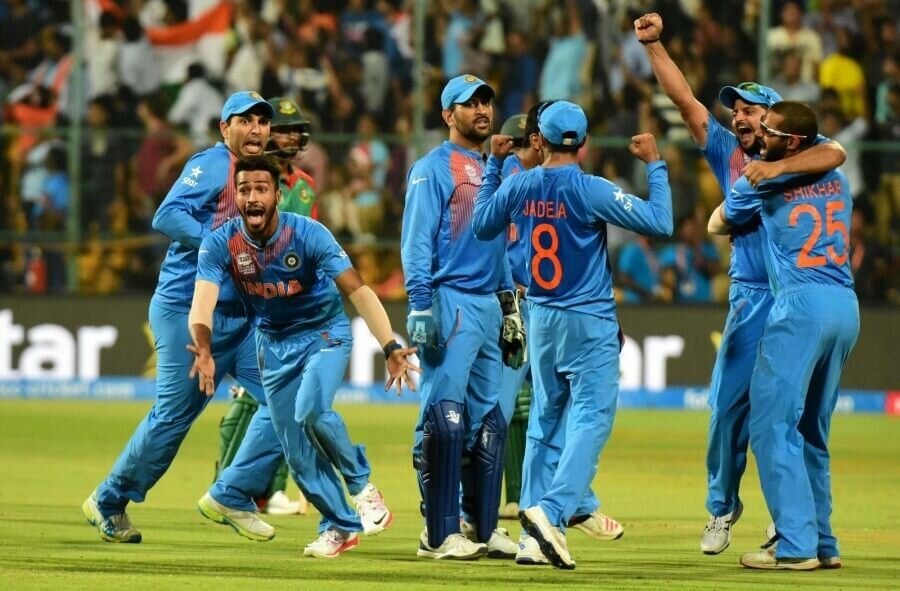5 WAYS TO IMPROVE TEST CRICKET
SAM BROOKES | 30th May 2020

Due to the ongoing coronavirus pandemic, cricket has been on hold since early March, and rightfully so. There have been some tentative talks about a possible return date in July, but for now it is still unclear as to when the sport will resume. Whilst other sports are slowly coming back, cricket is yet to be given the green light. However, this extended break has offered the chance for reflection. When cricket does get back underway, it will want to return better than ever. This leads to the question: how can Test cricket be improved?
Here we take a look at five ways to improve the longest format of the game moving forwards.
Third umpire decides no-balls
Bowling no-balls has become a major issue in Test cricket. At times, it has been farcical. Bowlers are regularly overstepping the front line, yet more often than not, they are able to get away with it. Umpires only tend to check for no-balls when a wicket falls, meaning that multiple no-balls throughout the rest of the day go unpunished.

In fairness, umpires do have plenty to deal with on a cricket field which is why it is time to lend the on-field officials some help. Handing third umpires the job of determining whether a no-ball has been bowled or not was trialled for the first time in December when India faced West Indies. It is amazing that it took so long to finally hand the third umpire some more responsibility.
Allowing third umpires to monitor the front foot placement would result in far more legal deliveries being bowled as bowlers would be aware that they are being observed and would be more vigilant in getting their foot behind the line. It would also mean that the on-field umpires can focus on what is going at the striker’s end. A simple solution to make the game fairer for all involved.
90 overs per day
There are supposed to be 90 overs bowled on each day of a Test match. The problem is that this rarely actually happens. Over rates seem to be dropping all the time, with unnecessary pauses during the day causing overs to be lost.
Of course, some will say that games do not go to a fifth day very often anymore. They may argue that losing some overs early on in the Test does not matter. Yet tickets are not getting any cheaper, and fans deserve to watch the full allocation of overs.
There are a number of ways to solve this issue. One idea is to start the day’s play earlier. Whilst the majority of days tend to start at 11am nowadays, most World Cup matches began at 10:30am in 2019. Why can this not be done for Test cricket to provide a little more time for the overs to be bowled?
Then there is the fact that umpires can get stricter with the players, preventing lengthy delays. With drinks breaks taking up to ten minutes and teams dawdling in the field, the game can meander at times. A stern word from umpires would put an end to this. If these amendments were made and overs were still being lost, then it would be the time to punish the captain. There should be no more excuses for not bowling 90 overs in a day.
Away team chooses the roller
It has become more and more apparent that home teams hold a major advantage over their opponents in each series. The hosts already have much greater knowledge of the conditions, get to prepare the pitch, and have the backing of their fans. If they then win the toss, it becomes a major uphill task for the visitors to win.
If you look across the matches of each nation, winning abroad has become increasingly difficult to achieve. Now is the time for a re-think.
One idea is to allow the away side to choose which roller is used in between innings. Traditionally, the batting side have been handed the choice, but allowing the away team this advantage would mean that the odds are no longer completely stacked against them.
In recent years, it has become almost a foregone conclusion that the home team will win each series. This rule adjustment could even up the odds slightly, making matches more competitive.
Make Every Series Matter
The introduction of the ICC Test Championship has been largely welcomed, with the final due to be played next year. It seems that may have to be pushed back due to the current lack of games taking place, but at least it means that teams are now always playing for something.
Or, at least, that was supposed to be the thinking behind it. However, not every series actually counts towards the competition. A recent example of this came in the series between New Zealand and England at the end of 2019. The two sides had battled it out in a memorable World Cup final just months earlier, but when England headed across the globe for the two-match series, they went with the knowledge that it would not result in them adding any points to their total in pursuit of making the Test Championship final.

The series ended in a 1-0 victory for New Zealand, not that it mattered too much. This is where cricket must improve. Bringing the Test Championship in is a step forward, but each game should have something riding on it. Playing short series’ that flash by in less than two weeks with no points available does very little in terms of progressing the game. This needs to be addressed.
Keep 5 Day Tests
Making changes should be welcomed, as we hope to see cricket reach new heights in the years to come. Still, there are some things that should stay the same. Keeping Test matches at five days is one of them.
There have been debates as to whether Test cricket should be limited to four days. The argument is that less games are going to five days nowadays, so another day’s play is not required as much. There is some truth to this, yet there are still plenty of matches that do require a fifth day, and often they are the most intriguing contests to watch.
One example of this came in the recent series involving South Africa and England in Cape Town, with the tourists winning inside the final hour of play. The action was gripping, with tension building throughout the day before some heroics from Ben Stokes got England across the line. These kinds of moments would be lost if the match was shortened.
Part of what makes Test cricket so special is that it is so different to the other formats of the game. Those who reach the top must be technically and tactically sound, whilst possessing patience to build an innings or pick up a wicket. It really is the ultimate challenge. Keeping games at five days will ensure that it remains that way.
Read More
MARK RAMPRAKASH AND THE DEMONS OF UNFULFILLED POTENTIAL
RAVI RAJ \
FEATURES
A T20 CLASSIC- INDIA’S IMPOSSIBLE WORLD CUP COMEBACK WIN OVER BANGLADESH
TAPAN UNADKAT \
THROWBACKS
HOW DO NEW ZEALAND REACH THE TOP OF THE TEST TREE?
SAM BROOKES \
THE DRAWING BOARD



